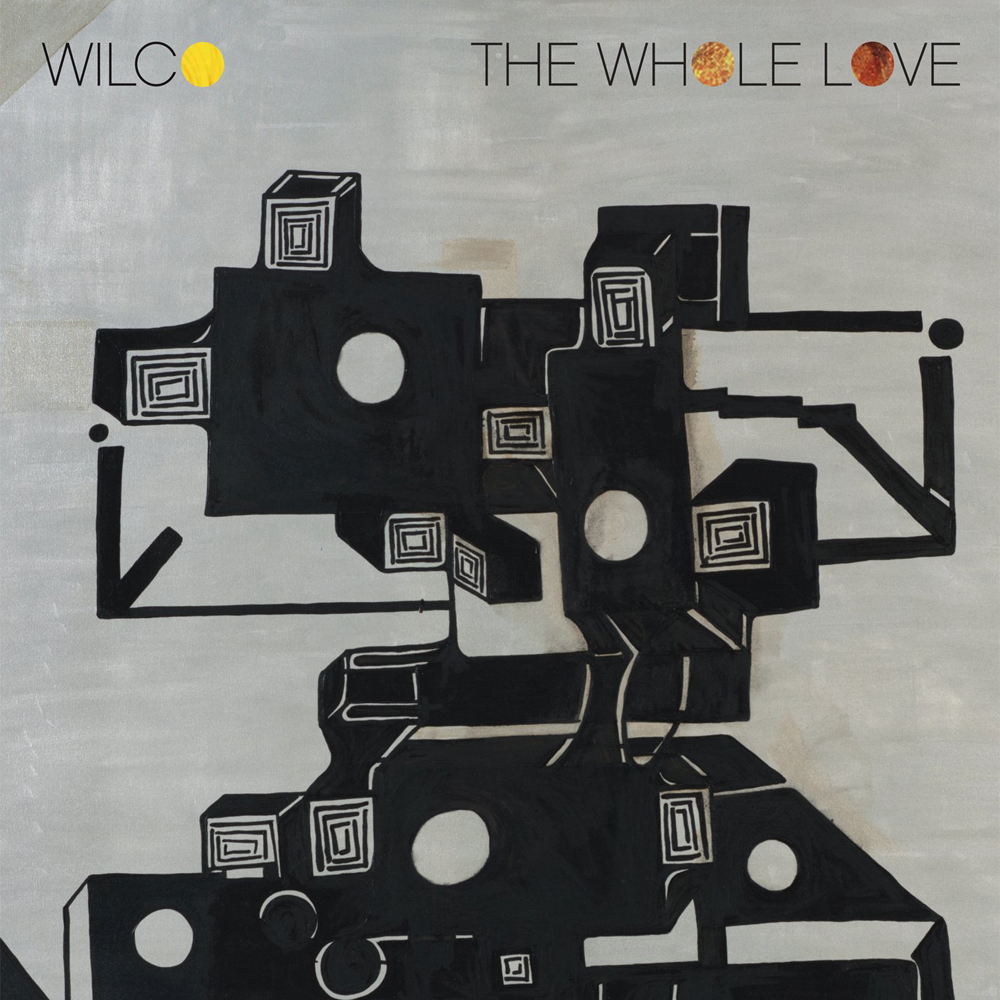In 2009, Wilco made the decision to put a photograph of a camel with a party hat standing in the middle of Milwaukee on the front cover of their eponymous seventh album. Now, that record was really just “Wilco being Wilco.” A fun album with several gems (namely, the first four songs on the record), it mostly suffered from flat production and some by-the-numbers songwriting. Their previous effort, Sky Blue Sky was ripped apart for being too “dad-rock”; a lazy term that would probably label Bob Dylan or Neil Young if they were new artists nowadays. Before that though, Wilco was consistently putting out undisputedly great records that pushed the boundaries of experimental pop. One had to wonder why they kinda fell back on that with Sky Blue Sky and Wilco (the Album).
If one needed any indication that Wilco were going to push the boundaries again like they had in the past, they would not need to look any further than the spectacular, towering opener “Art of Almost.” In seven and a quarter minutes, Wilco open their ninth record, The Whole Love with their biggest bang since “I Am Trying to Break Your Heart,” and maybe even before that. It’s noisy, pounding, and it devolves into an absolute shredfest by the end. While many might call “Almost” a red herring, it fits on this mixed bag of a record, particularly when being followed by catchy single “I Might.” More than any other song on the record, “I Might” could’ve easily been found in the bootleg recordings of the Yankee Hotel Foxtrot sessions. It has that upbeat bounce and catchy melody that make “Kamera,” “Heavy Metal Drummer,” and “Pot Kettle Black” everlasting as well.
This album contains callbacks to Summerteeth (“Sunloathe,” “Dawned on Me”), Being There (“Black Moon,” “Standing O”), and even Mermaid Avenue (“Capital City”) and their debut, A.M. (the title track). The difference here is that these don’t seem like Wilco having to rely on old songwriting methods to do well, but rather, they do a stellar job improving on the older methods. The slower numbers, which on Sky Blue Sky and Wilco (the Album) sometimes felt very flat and emotionless, really come out on this record. For example, “Black Moon” is backed by a gorgeous string section, gorgeous slide guitar, and it sounds like a really good Ryan Adams songs, or an update of Uncle Tupelo’s “Black Eye.” Jeff Tweedy’s lower vocal register is exceptional. How it’s been absent from the last few records is baffling.
However, there are parts of this record that are unlike anything Wilco has ever done. Namely, the brilliant album closer, “One Sunday Morning,” best demonstrates this. For twelve minutes, Jeff Tweedy captivates us with a hypnotically beautiful acoustic guitar picking. He sings in a low voice about how writer Jane Smiley’s boyfriend was condemned by his own father about his lifestyle. When the father died, the boyfriend felt relief. Now this isn’t a subject many can relate to, but the story is powerful, and the emotion felt is an interesting one. “One Sunday Morning” could be easily classified in the same camp as “She’s a Jar” or “Via Chicago” off Summerteeth. It’s not depressing, especially musically, but the emotion felt is very uncertain. Nick Drake’s influence shows here as well, even musically. The emotion felt by Drake’s music is neither happy, nor very sad; it’s a strong juxtaposition between dark and light, and Tweedy pulls this off very well with a backing of breathing pianos and other sound effects. “One Sunday Morning” is one of the best things this band has ever created, and leaves an impression after its conclusion. It begs for repeat listens, much like the rest of the album. And unlike numerous other long closers, it holds your attention for the entire duration for the song, much like Yo La Tengo’s “Night Falls on Hoboken.”
The record’s flow is something of question though. With a totally bombastic opening duo and a gorgeous, cinematic close, you can’t help but feel some drag in the middle at times. Some songs (“Sunloathe,” “Open Mind”) feel somewhat undercooked compared to other counterparts or similar Wilco tracks from the past. The placement of the punk rock punch of “Standing O” is incredibly questionable when placed between the Randy Newman sounding “Capital City” (look for it in a Pixar short near you, which will be awesome) and the gorgeous “Rising Red Lung.” If there’s something that made Summerteeth and Yankee Hotel Foxtrot brilliant, it was the flow and cohesiveness of those records. And even with those, though their live versions may have been blown up into something more full, all songs on those records came across entirely fleshed out, while some of the songs here on The Whole Love seem disappointingly incomplete.
Besides “One Sunday Morning,” if The Whole Love should be remembered for anything, it should probably be the production. Sure, the clarity of the instruments and the alien radio static on Yankee Hotel Foxtrot was great; there’s a reason that album is a modern classic. The Whole Love is a different case though. This is a band who are continually reinventing themselves, and reinventing what good pop music is. If they work backwards, they’re still moving forward with their sound. The Whole Love is a solid return for Wilco, and hopefully them pushing their sound in more new directions as they have done here, particularly on the first and last tracks.

